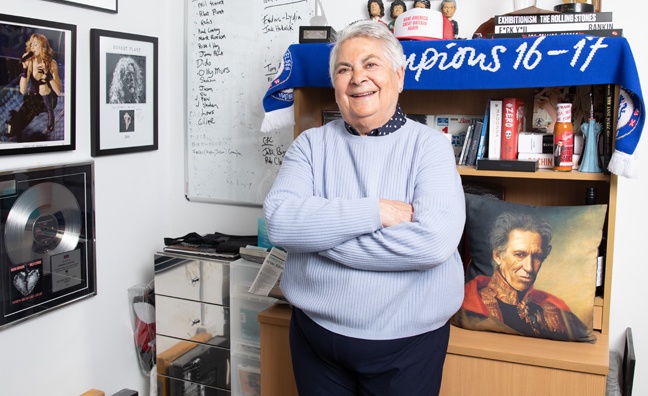Last night, the music industry was united in appreciation for Barbara Charone, winner of the Strat at the Music Week Awards 2022. To celebrate the truly epic career of a former journalist and long-serving publicist without whom there would be no modern music press, we sat down with BC, as she is more commonly known, for a special interview. Here, the legendary exec reflects on her story so far, holds court on the state of the media and explains why there’s no greater thrill in music than good PR…
WORDS: NIALL DOHERTY
PHOTOS: PAUL HARRIES
Everyone who’s crossed paths with Barbara Charone will have some sort of funny anecdote to relay about the encounter. The recipient of the Strat Award, who was introduced by 2018 winner and Warner Music Group's CEO, recorded music Max Lousada at last night’s Music Week Awards, is one of the finest and most successful PRs of her generation. But Charone is also a force of nature, a Chelsea diehard who is frequently hilarious, passionate, fierce and never less than highly entertaining company.
There are a few contenders from this writer’s own collection, but perhaps the pick of the bunch is the time when Charone, known to most as “BC” (a nickname given to her by Pet Shop Boys’ Neil Tennant), and I were in Montreal to conduct a Q cover feature with Depeche Mode. We had just made the short trip over from Toronto and arrived at our boutique hotel in the city’s Old Montreal neighbourhood to find an army of fans waiting outside the entrance. Depeche Mode were in a different hotel, and this didn’t really look like their crowd, so who were they here for, we wondered?
BC got straight into it with the concierge as we were checking in. “Who are all those fans here for?” she enquired. “Oh, I can’t say,” he replied. This was not going to cut it. “Who are they here for?” she said again. He laughed to himself with the slightly nervous air of a man thinking, ‘I just answered this question five seconds ago’. “I can’t say,” he said again. BC wasn’t giving up. “Come on!” she demanded. “I can’t…” “Come on!” “It’s…” he stammered, “…someone famous.” That was it. “I work with famous people,” BC bellowed. “Look me up!”
It was a classic bit of BC, and she was right: she does work with famous people. In four decades working as a PR, she’s worked with some of the most famous people on the planet. Madonna, Elton John, Rod Stewart, Keith Richards, R.E.M., Foo Fighters, Robert Plant and many more have all been honoured with her intensely loyal approach to artist publicity, both as the head of press at Warner Brothers and then at MBC, the company she co-founded with long-term sparring partner Moira Bellas.
Before that, Charone was a successful music journalist who contributed to a variety of titles including Rolling Stone, Chicago Sun-Times, Creem, Crawdaddy, NME and Sounds as well as writing an authorised biography on Keith Richards titled Life As A Rolling Stone. She recounts her life as both journalist and PR in a new memoir titled Access All Areas, a process that she says reminded her how much she enjoys writing.
Despite being a proud Chicagoan, it’s in the UK where Charone made her mark.
“I grew up in America but I embraced everything British,” she says, over the phone from her home in London’s Maida Vale. “A Hard Day’s Night, Peter Cook and Alan Bennett’s Beyond The Fringe, David Frost’s That Was The Week That Was. I gravitated to everything British, so when I came here on a family trip to Europe, I just ate it all up – the red buses, the taxis, the post boxes, everything. London always felt to me like the centre of the universe for music, and it still does.”
Charone sees her Strat award as a celebration of the job she’s been doing for 40 years. Only the second ever PR to win it (after Rob Partridge in 2009), she thinks that PRs, radio and TV pluggers don’t get enough credit for the work they do. “Winning this is taking one for the team, but in a really great way,” she says.
She has watched as the industry has evolved and mutated around her.
“When I started doing PR, there was no social media, no Instagram, no Twitter, and circulations were a lot bigger because there was no competition from social media,” she recalls. “Access to artists was a lot better but that was also because the music business was in its infancy. People’s time constraints are much bigger now and there’s just so much choice.”
As anyone who has worked with her will tell you though, Charone has a knack for finding the positives. Despite expressing her sadness that titles such as Q and Smash Hits have fallen by the wayside, she’s still more excited about the present and the future than she is banging on about the past. It’s just in her nature. The big wheel keeps on turning.
“I don’t think there’s any point being negative!” she booms. “There’s always new artists around the corner.”
At the heart of everything she does, she says, is her love of music. She believes some people come into the business for the wrong reasons and they’re always found out.
“My whole career has been completely based on loving music and being a music fan,” she says. “Some people get caught up in wanting to work with celebrities, more interested in going backstage and being on the guest list than they are in the actual music. You can tell the people in the music business, on any side of it, the ones that really love music. People send us lots of stuff and I still listen, because you never know, it might be something great.”
It’s that sort of attitude that makes BC who she is, a full-throttle music obsessive who has never taken her foot off the pedal, who needs to hear the best new records, work with the best new bands, find out who the gaggle of fans are waiting for outside the hotel. A few moments after her run-in with the receptionist who wouldn’t reveal the identity of the famous person staying at our hotel, I got to my room. Before the door had swung shut, the room phone was ringing. I picked up. “It’s Lady Gaga!” came the voice down the line. She had to know. Here, this year’s Strat winner looks back over her illustrious career…
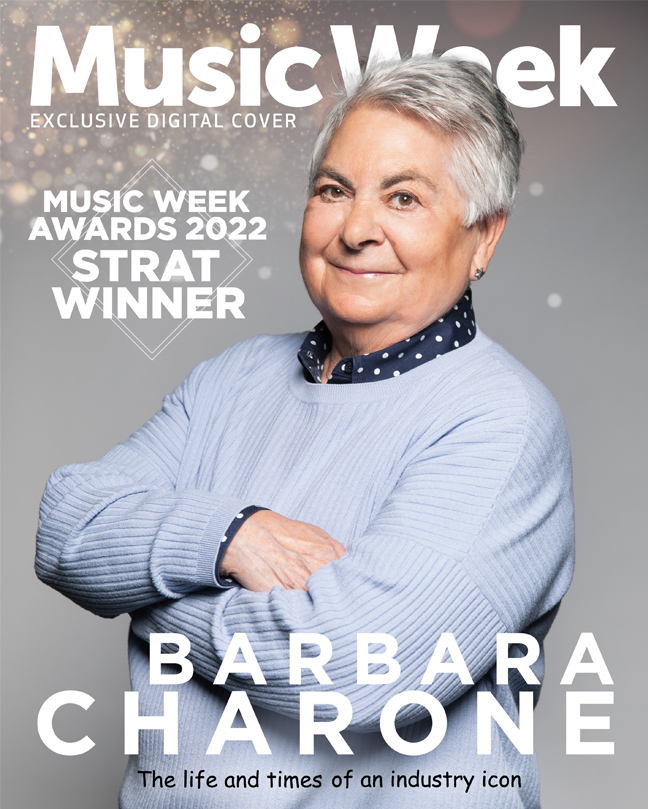
For starters, name one thing that’s better and one thing that’s worse now compared to when you began your career in PR…
“One thing that’s better, I’d say, is writing. I think the writing in this country is great. The writing and also the broadsheet music coverage, that’s getting better and better. The thing that’s worse… I think it’s good to have an aura of mystique around you to a degree, and although I think Twitter and Instagram are great for artists, it means you can’t do whatever you want without keeping some of that private.”
You see a lot of artists moving away from proper press now and interacting through social media instead. What’s your take on that?
“I don’t believe in that whatsoever because I think the thing about interviews and journalists is that you don’t want just breaking news, little mini headlines all the time. If someone does an interview with an artist, it’s really good to get their opinion, and get both people’s opinions across with a little bit of thought instead of a narrative of ‘me me me.’”
Do you still get excited about print?
“Yeah, I get so excited. When I have a new act, or even a big act, I still always want to get in The Guardian Friday playlist. I get excited whether it’s a big feature in The Guardian, like we had with Kasabian the other day, or a first single review or first live review, even a little item in Bizarre in The Sun.”
Some journalists have found you quite scary over the years. Have there been any misconceptions about you over the years that you’ve found annoying?
“I don’t think I’m that scary! Scary probably just means having an opinion and not taking fools gladly. I’m also fiercely loyal to the artist and us PR people are here to protect the artists. If we tell the artist, ‘you should do an interview with this person, this magazine’, and it goes belly up, then we’ve made a bad decision. The more famous they are, the more pressure there is, but that’s also part of the fun. One thing that’s always very contentious with artists is album reviews. We’ve always just got to tell people, ‘if you got a bad one, it’s just one person’s opinion.’”
What about if an artist gets bad reviews across the board?
“Years ago, R.E.M. had an album that was their first three-star album review. I remember calling up whoever was editor at Q then and having a right go, ‘How dare you!’. And then all the other reviews came out and they were all three-star reviews. Then you have to say to yourself, ‘You know what, this is a three-star album.’”
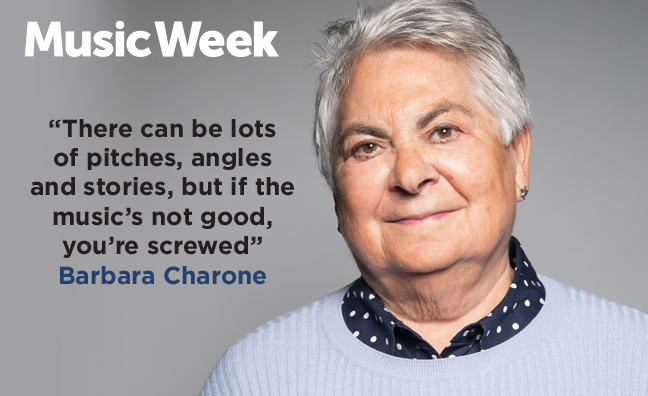
So what is the best way to break that to a band?
“I think you just have to be honest. You have to be honest with the artists and you have to be honest with journalists. I don’t like playing games. But sometimes we live in a bubble, especially when you’ve worked with an artist for a long time and it’s so exciting to get the new album. An album review is one person’s opinion, but if everybody has the same line on it, you have to think, ‘maybe they’re right.’”
Talking of artists you’ve worked with for a long time, your working relationship with Keith Richards has stretched over decades. What’s the secret to that?
“I was a massive Stones fan, and thought the Stones was Mick Jagger, like everyone else did. But meeting Keith, he was the living persona of what the Stones’ music sounds like as a person. I wrote the authorised biography, which was an amazing experience. I was keen to do a book and I was just so lucky that someone as interesting as Keith said yes. I went to Canada to start the book and by the time I got off the plane, Keith had been arrested for drug possession. It made for an incredible bonding experience. I’d been down to his house at Redlands a couple of times, but to be living down the hall for a month in a hotel, with someone that you were writing about who was also going through an incredibly difficult time in their life, it was really great for our relationship. Then I went to work at Warner and about 20 years later set up my own PR company, and then got to have Keith as a client. It’s really great to have been on both sides.”
You’ve worked with Madonna since she was an unknown. How did it feel seeing her go from nothing to one of the world’s biggest stars?
“Oh, it’s incredibly exciting. It’s a really great ride and it’s a great lesson, a great learning curve for everyone involved in it. Some artists may be the biggest in the world for a year or an album but with Madonna it just went on and on and on. There was a period with Bedtime Stories, where it didn’t do as well as all the albums before and people were like, ‘Madonna is in the dumper!’ And then she came back with Evita, then after that she had a run of albums that were just fucking phenomenal. It’s funny, with the 80s and 90s, people aren’t very kind to those decades. R.E.M. suffer from the same thing. I don’t think Madonna gets enough credit for her legacy of work.”
There’s been a lot of talk about toxic environments and sexism in the industry. What advice would you give to any young women starting out?
“Well, I’ve never seen or had people that worked with me be a victim of anything. But I would say in the last couple of years, as everyone’s gotten a little bit more politically correct, things people used to say back then in meetings about women could be construed as degrading now. I think with human resources at labels, people get away with it less. I would say that if you see something, or if someone does something or says something that offends you, you’ve got to speak up for yourself. But I’d say that about everything. You have to speak up for yourself and stand up for yourself and have confidence in yourself.”
When was the last time you gave someone a dressing down?
“When people come to work for me, I always say, ‘Look, if I get agitated about something, don’t take it personally.’ We all make mistakes, that’s the most important thing. At MBC, if someone does something wrong, you have to make sure that they learn from it. When you hire people, it’s about making sure they’ll be good at the job and teaching them.”
Have you got better at coping when people leave MBC?
“What do you mean better?! I mean, yeah, it’s part of life and the evolution of companies that people go. I like to think the reason they’re being poached from me is because they’re good.”
There’s a story that someone handed in their notice and you were handing out choc ices to the team and when it came to theirs, you squished it into their hand. Is that true?
“I can’t remember that! It could have been. Once they decide to leave, I always wind them up. I try and make them feel as bad as possible for the remaining months they have!”
There was a point in your career when you went into management, working with Rufus Wainwright. How do you look back on that period?
“I think I would have been a really good manager and it’s no secret that I love Rufus Wainwright. He’s one of my favourite artists. And he was at a funny period in his life, his mum had just died. After about six months, he thought that it was affecting our friendship, which I’m sure it was. I think it would have affected my company, too, so he really did me a favour because even though I think I would have been a good manager, I was risking a lot because I would have been at the office less and you don’t want to give up what you’re really good at. It ended up very civil, and I still work with him and we’re still friends and he wrote a song called Barbara on his next album. There’s a verse about drinking rosé, so he obviously really captured me!”
In your book, you recount a run-in you had with Stephen Stills when interviewing him as a journalist. What did you learn from that?
“I interviewed him on numerous occasions, and each one was a great lesson that these people might be good artists, but they’re not necessarily good people. And they’re also not necessarily happy. People always ask me what famous people are like. Famous people are just like everyone else, they wake up in a bad mood sometimes.”
What do you think are the main differences between the US and UK industries?
“You know, Americans tell you too much and British people don’t tell you enough. A combination of the two is really good. I’ve never really worked in the music business in America but I’d say that we’re much more down to earth in the UK. I think everything in the UK is more like a family. It’s smaller and more of a community because of the size.”
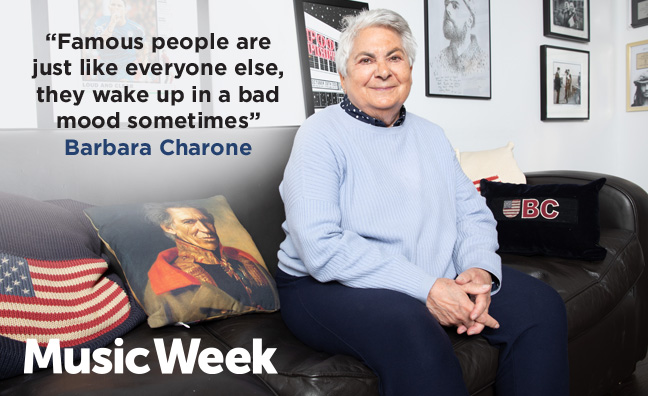
Can you recall the single biggest PR nightmare you’ve had to untangle?
“I don’t think there’s been one. I’d say that when music was really big in the tabloids in the 2000s and the end of the ’90s and the tabloids were selling three million papers, there was always a lot of pressure when a big artist was doing something with The Sun. You wanted The Sun on board but it’s like a shot that’s heard round the world if something went wrong. But I don’t think I’ve had one. It’s all experience. How diplomatic is that?”
And what does a successful PR campaign look like in 2022?
“I would say a broadsheet first look, probably The Guardian or The Times. I’m also a big fan of Something For The Weekend in The Sun. And I’m not just saying this, but I really like coverage in Music Week – a cover is amazing but even an Incoming, some sort of presence in Music Week for the trade is really important. Then a Mojo cover or big piece in Mojo and really good album reviews.”
If you could choose one campaign you’ve been involved in that you’re proudest of, which would it be?
“A lot of the Madonna campaigns, because she doesn’t do a lot of interviews, so it’s important to pick right. We did Mixmag once, we did The Face. Robert Plant and Alison Krauss on Raising Sand is one I look back on fondly. Lots of great work with R.E.M., or more recently Foo Fighters. The first Kasabian album we did, too, West Ryder Pauper Lunatic Asylum. They’d basically had no press prior to hiring me, they were just known as these lads from Leicester that drank beer and liked football and we turned that on its head.”
We said one campaign! What was the key to opening up that Kasabian coverage? `
“The music. Ultimately, there can be lots of pitches, angles and stories but if the music’s not good, you’re screwed. They had the biggest single of their career with Fire on that record. They became like the new Noel and Liam.”
Having spent a good chunk of your career at a major label, how do you view the majors landscape at the moment?
“I like being independent but I think major labels are a necessary part of the whole process. I think what’s good now compared to when I was at a label is that there’s been a trend in the last decade of putting things out of house, because it makes no sense that the same team would be right for every single artist, every artist is different. Funnily enough, when I was at a label, I got really upset if anyone hired an independent PR because I wanted to do everything in-house!”
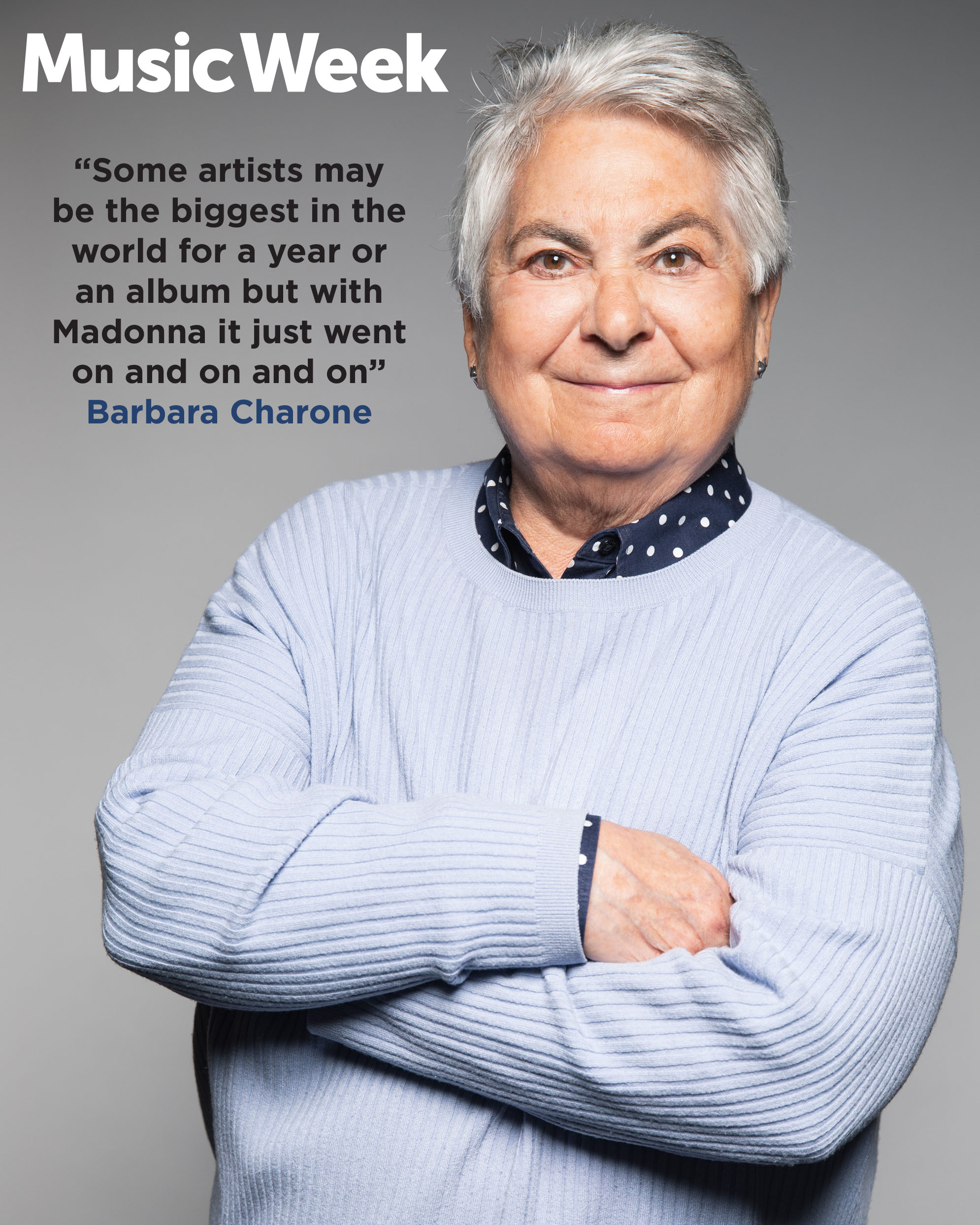
What’s the key to building a relationship with the artists you work with?
“I have a lot of artists that I’ve worked with for a really long time. Obviously, the more you work with them, the better it is. But again, it’s liking the music. I just think that there’s a lot of people that aren’t in it for the music and I think the artists really know I love music.”
You and MBC co-founder Moira Bellas have been partners in crime for a long time. What’s the key to that partnership?
“The key is both being good at different things, our strengths are different and they complement each other really well. When I came to England, she was one of the first people I met, she was a PR and I was a journalist. Then when I stopped being a journalist, after I wrote the book, I needed a job and she hired me to work in the press office at Warner, writing press releases. Then she rose through the ranks, she was pretty much the first female managing director of a major record company and I ran the press office. Then we set up our own company.”
Were there any teething problems in the early days at MBC?
“Oh, it was crazy. I left Warner Brothers on the Friday night and we started on the Monday. That day, the Daily Star said Madonna was going to marry at Skibo. We didn’t have to worry about people calling us – everyone rang! It was fun. It was really exciting.”
Finally, why should a band go to MBC over another independent PR?
“Because I’m very hands on. Anybody can go to a meeting or write a good proposal and get the job, but then sometimes they’ll take their eye off the ball or give it to more junior staff. I’m involved.”
